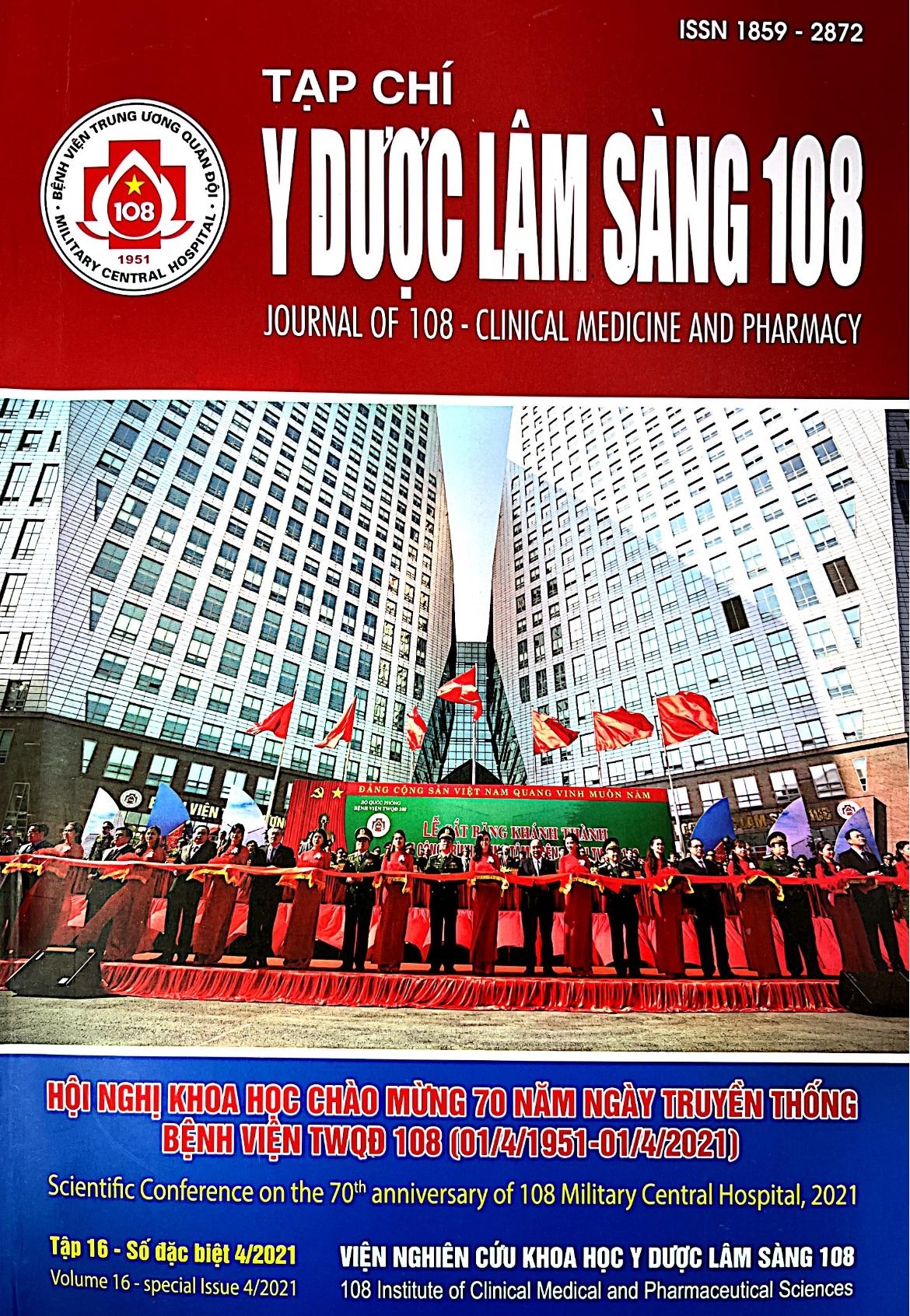Prognostic value of serum high-sensitive troponin T level in patients with sepsis
Main Article Content
Keywords
Serum hs-troponin T, sepsis, mortality
Abstract
Objective: To investigate the prognostic value of hs-troponin T (hs-cTn T) in patients with sepsis. Subject and method: 109 patients with sepsis according to (SCCM/ESICM) (2016) were included. A prospective, observational study. Blood samples were collected at first medical evaluation to measure hs-cTn T level. Result: Area under the curve in analysis regarding mortality showed significant values of area for hs-cTn T (AUC: 0.65), at cut-off value 35.5ng/L, sensitivity 84.6% and specificity 42.0%. Conclusion: Serum hs-cTn T level has mortality prediction value in septic patients
Article Details
References
1. Pulido JN, Afessa B, Masaki M, Yuasa T, Gillespie S, Herasevich V, Brown DR, Oh JK (2012) Clinical spectrum, frequency, and significance of myocardial dysfunction in severe sepsis and septic shock. Mayo Clin Proc 87(7): 620-628.
2. Song MJ, Lee SH, Leem AY et al (2020) Predictors and outcomes of sepsis-induced cardiomyopathy in critically ill patients. Acute Crit Care 35(2): 67-76.
3. Morrow DA, Cannon CP, Jesse RL, Newby LK, Ravkilde J, Storrow AB, Wu AH, Christenson RH (2007) National Academy of Clinical Biochemistry National Academy of Clinical Biochemistry laboratory medicine practice guidelines: Clinical characteristics and utilization of biochemical markers in acute coronary syndromes. Circulation 115: 356-375.
4. Singer M, Deutschman CS, Seymour CW et al (2016) The third international consensus definitions for sepsis and septic shock (sepsis-3). Jama 315(8): 801-810.
5. Røsjø H, Varpula M, Hagve TA et al (2011) Circulating high sensitivity troponin T in severe sepsis and septic shock: Sistribution, associated factors, and relation to outcome. Intensive Care Med 37(1): 77-85. doi:10.1007/s00134-010-2051-x.
6. Chang WT, Lee WH, Lee WT et al (2015) Left ventricular global longitudinal strain is independently associated with mortality in septic shock patients. Intensive Care Med 41(10): 1791-1799.
7. Vallabhajosyula S, Sakhuja A, Geske JB, Kumar M, Poterucha JT, Kashyap R, Kashani K, Jaffe AS, Jentzer JC (2017) Role of admission troponin-T and serial troponin-T testing in predicting outcomes in severe sepsis and septic shock. J Am Heart Assoc 6(9): 005930.
8. Masson S, Caironi P, Fanizza C et al (2016) Sequential N-terminal pro-B-type natriuretic peptide and high-sensitivity cardiac troponin measurements during albumin replacement in patients with severe sepsis or septic shock. Crit Care Med 44(4): 707-716.
9. Wang TT, Jiang L (2017) Relationship between highly sensitive cardiac troponin T and sepsis and outcome in critically ill patients. Zhonghua Nei Ke Za Zhi 56(10): 738-742.
10. Bessière F, Khenifer S, Dubourg J, Durieu I, Lega JC (2013) Prognostic value of troponins in sepsis: A meta-analysis. Intensive Care Med 39(7): 1181-1189.
11. De Geer L, Engvall J, Oscarsson A (2015) Strain echocardiography in septic shock - a comparison with systolic and diastolic function parameters, cardiac biomarkers and outcome. Crit Care 19: 122.
12. Orde SR, Pulido JN, Masaki M et al (2014) Outcome prediction in sepsis: Speckle tracking echocardiography based assessment of myocardial function. Crit Care 18(4): 149.
2. Song MJ, Lee SH, Leem AY et al (2020) Predictors and outcomes of sepsis-induced cardiomyopathy in critically ill patients. Acute Crit Care 35(2): 67-76.
3. Morrow DA, Cannon CP, Jesse RL, Newby LK, Ravkilde J, Storrow AB, Wu AH, Christenson RH (2007) National Academy of Clinical Biochemistry National Academy of Clinical Biochemistry laboratory medicine practice guidelines: Clinical characteristics and utilization of biochemical markers in acute coronary syndromes. Circulation 115: 356-375.
4. Singer M, Deutschman CS, Seymour CW et al (2016) The third international consensus definitions for sepsis and septic shock (sepsis-3). Jama 315(8): 801-810.
5. Røsjø H, Varpula M, Hagve TA et al (2011) Circulating high sensitivity troponin T in severe sepsis and septic shock: Sistribution, associated factors, and relation to outcome. Intensive Care Med 37(1): 77-85. doi:10.1007/s00134-010-2051-x.
6. Chang WT, Lee WH, Lee WT et al (2015) Left ventricular global longitudinal strain is independently associated with mortality in septic shock patients. Intensive Care Med 41(10): 1791-1799.
7. Vallabhajosyula S, Sakhuja A, Geske JB, Kumar M, Poterucha JT, Kashyap R, Kashani K, Jaffe AS, Jentzer JC (2017) Role of admission troponin-T and serial troponin-T testing in predicting outcomes in severe sepsis and septic shock. J Am Heart Assoc 6(9): 005930.
8. Masson S, Caironi P, Fanizza C et al (2016) Sequential N-terminal pro-B-type natriuretic peptide and high-sensitivity cardiac troponin measurements during albumin replacement in patients with severe sepsis or septic shock. Crit Care Med 44(4): 707-716.
9. Wang TT, Jiang L (2017) Relationship between highly sensitive cardiac troponin T and sepsis and outcome in critically ill patients. Zhonghua Nei Ke Za Zhi 56(10): 738-742.
10. Bessière F, Khenifer S, Dubourg J, Durieu I, Lega JC (2013) Prognostic value of troponins in sepsis: A meta-analysis. Intensive Care Med 39(7): 1181-1189.
11. De Geer L, Engvall J, Oscarsson A (2015) Strain echocardiography in septic shock - a comparison with systolic and diastolic function parameters, cardiac biomarkers and outcome. Crit Care 19: 122.
12. Orde SR, Pulido JN, Masaki M et al (2014) Outcome prediction in sepsis: Speckle tracking echocardiography based assessment of myocardial function. Crit Care 18(4): 149.
 ISSN: 1859 - 2872
ISSN: 1859 - 2872
